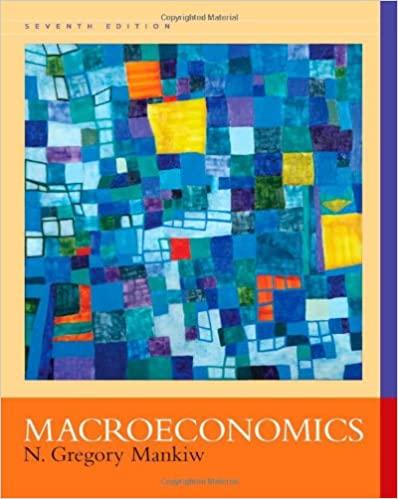8. Suppose that peoples expectations of inflation are subject to random shocks. That is, instead of being
Question:
8. Suppose that people’s expectations of inflation are subject to random shocks. That is, instead of being merely adaptive, expected inflation in period t, as seen in period t − 1, is Et–1pt = pt–1
+ ht–1, where ht–1 is a random shock. This shock is normally zero, but it deviates from zero when some event beyond past inflation causes expected inflation to change. Similarly, Etpt+1 =
pt + ht.
a. Derive the two equations for dynamic aggregate demand and dynamic aggregate supply in this slightly more general model.
b. Suppose that the economy experiences an inflation scare. That is, in period t, for some reason people come to believe that inflation in period t + 1 is going to be higher, so ht is greater than zero (for this period only). What happens to the DAD and DAS curves in period t? What happens to output, inflation, and nominal and real interest rates in that period? Explain.
c. What happens to the DAD and DAS curves in period t + 1? What happens to output, inflation, and nominal and real interest rates in that period? Explain.
d. What happens to the economy in subsequent periods?
e. In what sense are inflation scares self-fulfilling?
Step by Step Answer:







